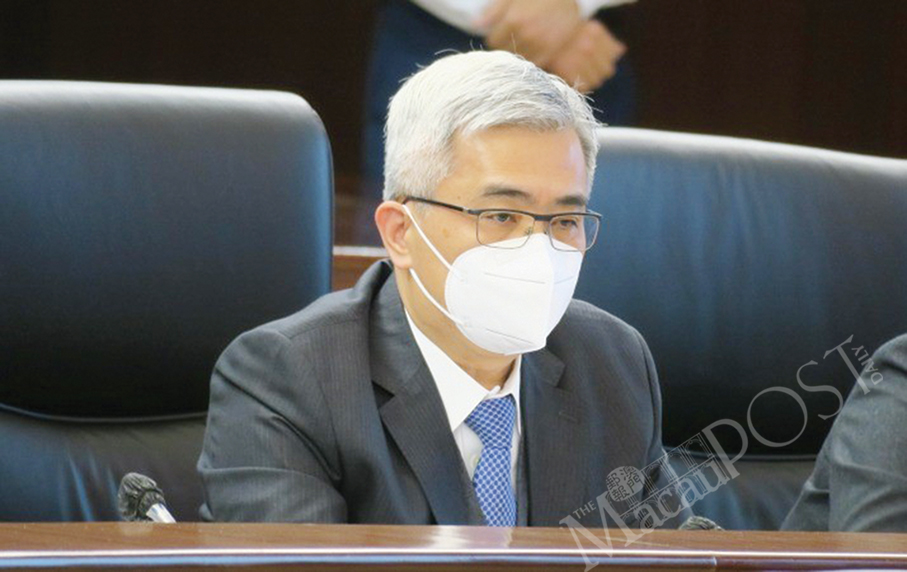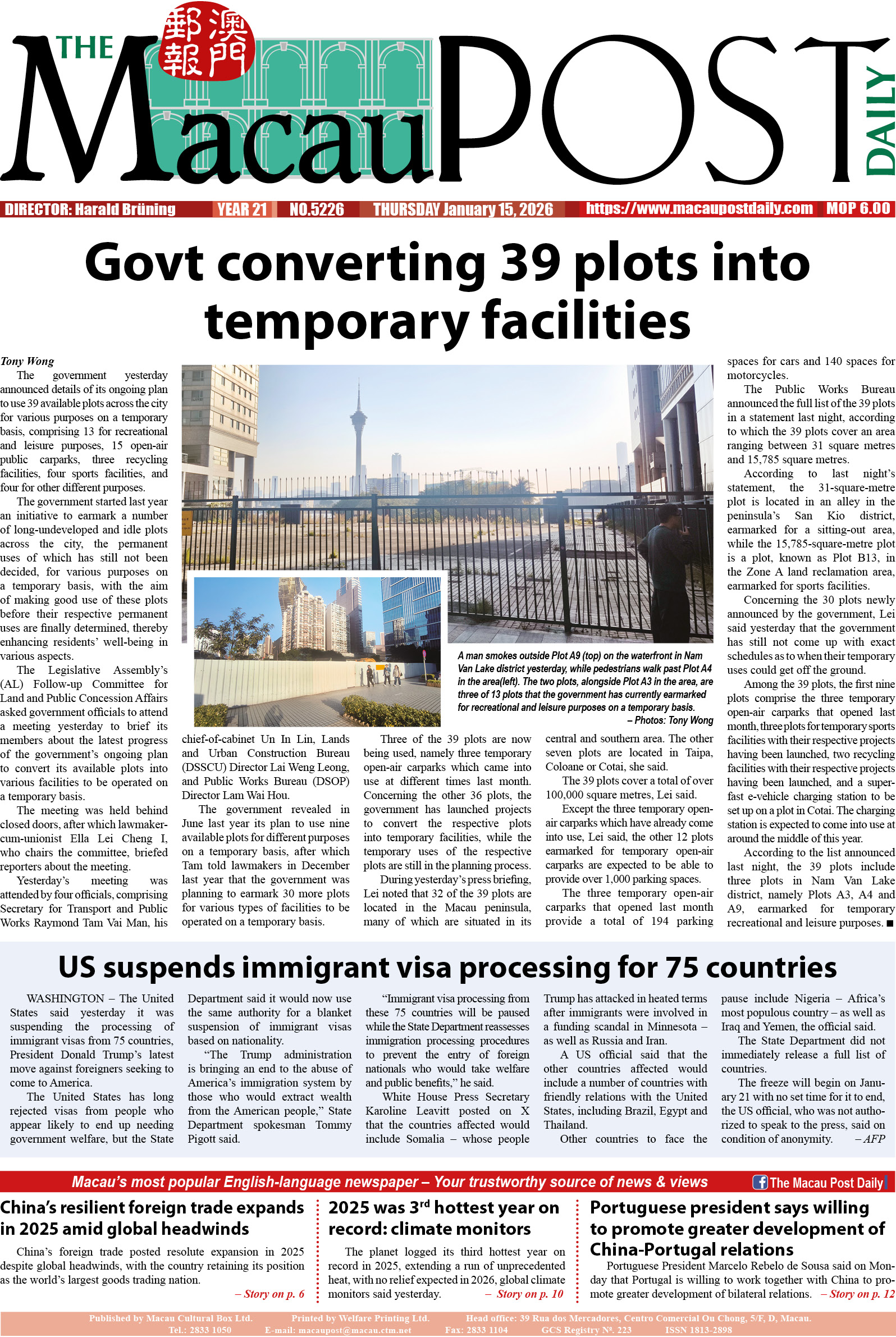Secretary for Security Wong Sio Chak said in the legislature’s hemicycle yesterday that Chief Executive Fernando Chui Sai On put his utmost effort into responding to the disaster of deadly Super-Typhoon Hato in August and in coordinating the various government entities in carrying out disaster relief measures.
Wong made the remarks when answering questions from several lawmakers, on the first day of a two-day Q&A session about his portfolio’s policy guidelines for next year.
Several lawmakers questioned whether Chui, as Macau’s top official, did enough to respond to the Hato catastrophe. They also questioned why the government did not start operating the Committee for Responding to Unforeseen Incidents, which was established in 2012 and chaired by Chui, when Hato was hitting Macau on August 23.
The government set up the Committee for the Review of the Mechanism for Responding to Major Disasters and its Follow-up and Improvement in late August in the wake of the deadly typhoon which killed 10 and injured 244. The government said at that time that the newly founded committee aimed to review its existing mechanism to tackle disasters and come up with measures to improve the mechanism. The new committee is also chaired by Chui.
The government also said at that time that the functions of the new committee were different to those of the Committee for Responding to Unforeseen Incidents. According to the Official Gazette (BO), the Committee for Responding to Unforeseen
Incidents is to coordinate and supervise the relevant government entities in the tackling of natural disasters, major accidents, severe
public health incidents and severe public security incidents.
Responding to lawmakers yesterday, Wong admitted that the operation of the Committee for Responding to Unforeseen Incidents was not brought into action when Hato was battering Macau.
Wong said that Chui put a great deal of effort into coordinating the government’s disaster relief measures after Hato hit Macau. “It is wrong to say that the chief executive did little in coordinating [the government’s disaster relief work]. I have to tell everyone that the chief executive actually did a lot of coordination work. He just wanted to remain low-key. The government did not announce the many things that he had done,” he said.
Wong said that Chui stayed in the Civil Protection Operations Centre in Pac On in Taipa until 2 a.m. the next day after the No. 8 signal had been hoisted on August 23. He also said that Chui had a total of four meetings with officials in the centre that day.
On August 23, the city’s weather station hoisted the No. 8 signal at 9 a.m., the No. 9 signal at 10:45 a.m. and the No. 10 signal at 11:30 a.m. All typhoon signals were lowered at 9:30 p.m. that day.
Wong also said that Chui had not “authorised” him to make the remarks, adding he believed, however, that he needed to clarify the wrong perception of Chui doing little during the disaster relief coordination.
No auxiliary police force
Meanwhile, Wong also said that he believed that the police’s ongoing cooperation with the city’s community associations was more helpful to assist the police in preventing and combating crimes, compared to the possible setting-up
of an auxiliary police unit.
Several lawmakers questioned whether the government would consider setting-up an auxiliary police unit similar to the one in Hong Kong. Wong said that the government would not consider the proposal.
Pointing out that auxiliary police officers need training, Wong said that he wondered how many residents in Macau would like to join an auxiliary police unit, as they would not be paid a salary.
Wong said that the police’s ongoing cooperation with a number of major community associations in Macau was able to produce results similar to an auxiliary police unit.
Wong also said that the police’s cooperation with the community associations was running smoothly, adding that he appreciated the assistance from the associations such as the Macau General Union of Neighbourhood Associations (Kai Fong), Macau Women’s General Association (Fu Luen), Macau Federation of Trade Unions (Gung Luen), Alliance for Common People Building Up Macau (API) and Macau Property Management Association.
Legislative Assembly (AL) President Ho Iat Seng (right) chairs yesterday’s plenary session in the legislature’s hemicycle. Photo: Tony Wong






